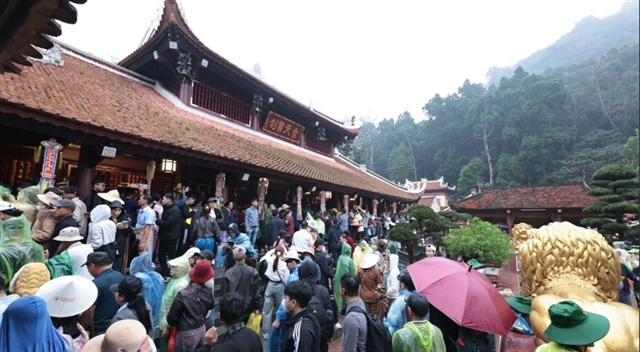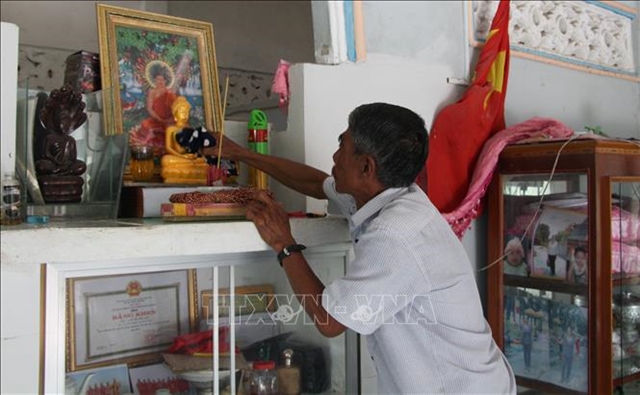 Life & Style
Life & Style

Khmer ethnic communities are celebrating their traditional New Year Festival – Chôl Chnăm Thmây – at home this year from April 13-16 instead of visiting pagodas as part of the national effort to battle the COVID-19 pandemic.

|
| A Khmer ethnic man cleans his house to prepare for the Chôl Chnăm Thmây Festival that falls from April 13-16. — VNA/VNS Photo Hồng Thái |
SÓC TRĂNG — Khmer ethnic communities are celebrating their traditional New Year Festival – Chôl Chnăm Thmây – at home this year from April 13-16 instead of visiting pagodas as part of the national effort to battle the COVID-19 pandemic.
In recent days, members of Thạch Minh Dương’s family in Đại Tâm Commune, Sóc Trăng Province, have been staying at home except to go out and buy necessities.
The family raises cows so they have been keeping themselves occupied with farm work. The only rare moment they go out is to sell their milk, and they wear face masks to protect themselves and others.
“We will celebrate this year’s Chôl Chnăm Thmây Festival at home, limiting contact with the crowds. The rituals will be conducted as simply as possible while the chief of the hamlet will help to bestow our offerings to local monks. My friends and relatives will not be gathering either but we will chat with them on the phone. We will have plenty of opportunities to meet when COVID-19 is over,” Dương said.
Like Dương’s family, most other Khmer people living in Sóc Trăng Province are staying at home. Some have family members working far from home in Bình Dương Province and HCM City, but they've asked them to stay away until the pandemic is over.
“We used to be very happy to see relatives returning for the Chôl Chnăm Thmây Festival. However, I have asked my children who are working in Bình Dương Province not to return this year. We are conducting our rituals at home and we have other people to take our offerings to the monks. By celebrating in this way, we can enjoy a happy and safe festival,” said Trà Thị Siêl from Thạnh Quới Commune.
According to venerable Thạch Bonl, chief monk of Preah Buôn Preah Phek Pagoda in Phú Tân Commune, the pagoda and many others in the region had responded to national and local measures to prevent and control the COVID-19 pandemic by passing on information to Buddhist followers, telling them to restrict their visits to pagodas and avoid gatherings.
“The rituals will be conducted simply. The ceremony at the sand dunes will not be held while the bathing of Buddha statues has been completed to eliminate gatherings,” said the monk.
“Everyone wants to visit the pagodas during the New Year Festival but for our own safety and our relatives, I decided to stay at home. This was I can still fulfill my duties as a Buddhist and abide by the recommendations made by the Government. After the end of the pandemic, I can visit the pagodas to pray,” said Huỳnh Thị Út from Lai Hòa Commune.
According to vice chairman of Lai Hòa Commune’s People’s Committee, Võ Hoàng Nam, 70 per cent of the population in the commune is Khmer. As a remote area in Sóc Trăng Province neighbouring Bạc Liêu Province, local authorities have paid special attention to the safety of locals and Buddhists by frequently reminding them to avoid gatherings and supporting the celebration of the Chôl Chnăm Thmây Festival from home.
Sóc Trăng has the biggest population of ethnic minority Khmer people in the country with over 400,000, accounting for 30 per cent of the province’s population.
Traditionally, on celebrating Chôl Chnăm Thmây Festival, locals flock to the pagodas to bestow offerings to pay tribute to their ancestors and participate in rituals. — VNS




